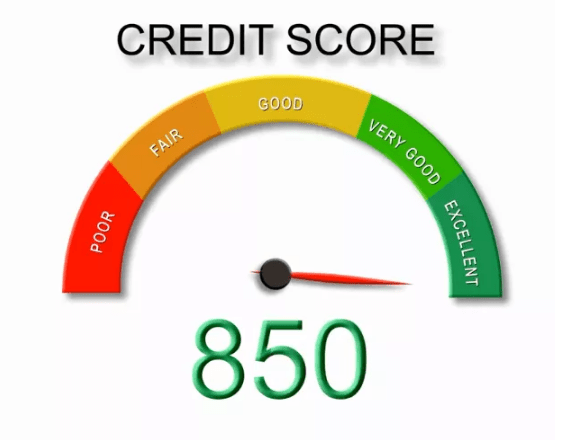COAF on Your Credit Report: Is It Something to Worry About

When reviewing your credit report, you may come across unfamiliar terms or acronyms, one of which could be COAF. For many, seeing “COAF” listed can be confusing and raise questions about its impact on their credit score and future financial opportunities. In this article, we’ll explain what COAF stands for, its significance on your credit report, and whether it’s something you need to worry about—especially if you’re trying to get an apartment with bad credit.
What Is COAF on Your Credit Report?
Decoding the Acronym COAF
COAF stands for Capital One Auto Finance, a division of Capital One that specializes in providing auto loans. If you see COAF on your credit report, it typically indicates that you have either applied for or been approved for an auto loan through Capital One Auto Finance. This can appear under your credit inquiries or as an active account if you’ve taken out a loan.
Types of COAF Entries You Might See
- Hard Inquiry: If you’ve recently applied for an auto loan with Capital One Auto Finance, a hard inquiry will appear on your credit report. Hard inquiries can temporarily lower your credit score by a few points and remain on your report for up to two years.
- Open or Closed Account: If you’ve successfully secured a loan, COAF may appear as an open account detailing your payment history. Conversely, if you’ve paid off the loan or refinanced, it will show up as a closed account with your payment history intact.
Does COAF Affect Your Credit Score?
The Impact of Hard Inquiries
Hard inquiries, such as those generated by applying for an auto loan through COAF, can reduce your credit score by a small amount—usually 5 to 10 points. However, the impact diminishes over time, typically becoming negligible after a few months.
If you’re worried about the presence of COAF on your credit report, keep in mind that lenders typically consider multiple factors when evaluating your creditworthiness, including your payment history, credit utilization, and length of credit history. One inquiry is unlikely to cause long-term damage unless you have multiple hard inquiries within a short timeframe.
The Role of Loan Accounts
If you’ve taken out a Capital One auto loan, the COAF entry will reflect your payment history, loan amount, and balance. Consistently making on-time payments will have a positive effect on your credit score, improving your financial profile over time. Conversely, missed or late payments will negatively impact your credit score, potentially making it more difficult to secure future loans or credit lines.
How COAF Affects Renting an Apartment with Bad Credit
Challenges of Renting with Bad Credit
Having poor credit can make renting an apartment more challenging, as many landlords and property management companies perform credit checks on prospective tenants. A COAF entry on your credit report could be a neutral factor, but other aspects of your credit history—such as late payments or high credit card balances—may raise red flags.
Strategies for Renting with Bad Credit
If you’re worried about how to get an apartment with bad credit, there are a few strategies that may help:
- Provide a Strong Rental History: Demonstrating a history of on-time rent payments can reassure landlords that you’re a reliable tenant, even if your credit score isn’t ideal.
- Offer a Larger Security Deposit: By offering a higher upfront security deposit, you can offset a landlord’s concerns about your creditworthiness.
- Get a Co-Signer: Having a co-signer with a strong credit profile can significantly increase your chances of approval.
- Show Proof of Income: Providing documentation of steady employment and income can help landlords overlook a lower credit score.
- Explain Your Situation: If COAF or other entries on your credit report are related to temporary financial setbacks, explain your circumstances and how you’ve addressed them.
Is COAF Something to Worry About?
When It’s Not a Concern
In most cases, seeing COAF on your credit report isn’t something to worry about. If it reflects a legitimate auto loan inquiry or account, it indicates that you’ve either applied for or are managing an auto loan responsibly. As long as you make timely payments and avoid defaulting, this entry should not negatively affect your creditworthiness in the long term.
When You Should Be Concerned
However, there are scenarios where a COAF entry might raise concerns:
- Fraudulent Activity: If you don’t recall applying for a Capital One auto loan, this could be a sign of identity theft. Contact Capital One and the credit bureaus immediately to dispute the inquiry and safeguard your credit.
- Missed Payments: If you’ve taken out a COAF loan but struggle with repayments, the negative marks from missed or late payments can hurt your credit score and make it more difficult to obtain future loans or even rent an apartment.
How to Manage and Monitor COAF on Your Credit Report
Regular Credit Monitoring
Monitoring your credit report regularly is essential for ensuring that all entries, including COAF, are accurate. You’re entitled to one free credit report annually from each of the three major credit bureaus (Experian, Equifax, and TransUnion). Reviewing your report helps you spot any discrepancies or unauthorized inquiries.
Disputing Inaccuracies
If you notice an error, such as a COAF entry you didn’t authorize, file a dispute with both Capital One and the relevant credit bureau. Resolving errors promptly can prevent long-term damage to your credit score.
Conclusion – COAF’s Role in Your Financial Picture
In summary, COAF on your credit report usually indicates that you’ve interacted with Capital One Auto Finance. While its presence may temporarily affect your credit score due to hard inquiries, it’s generally not a long-term concern unless accompanied by missed payments or unauthorized activity.
If you’re trying to get an apartment with bad credit, it’s important to present a well-rounded financial profile, including proof of stable income, a solid rental history, or a co-signer. By understanding how COAF entries work and staying proactive about your credit, you can mitigate potential issues and improve your financial standing over time.





